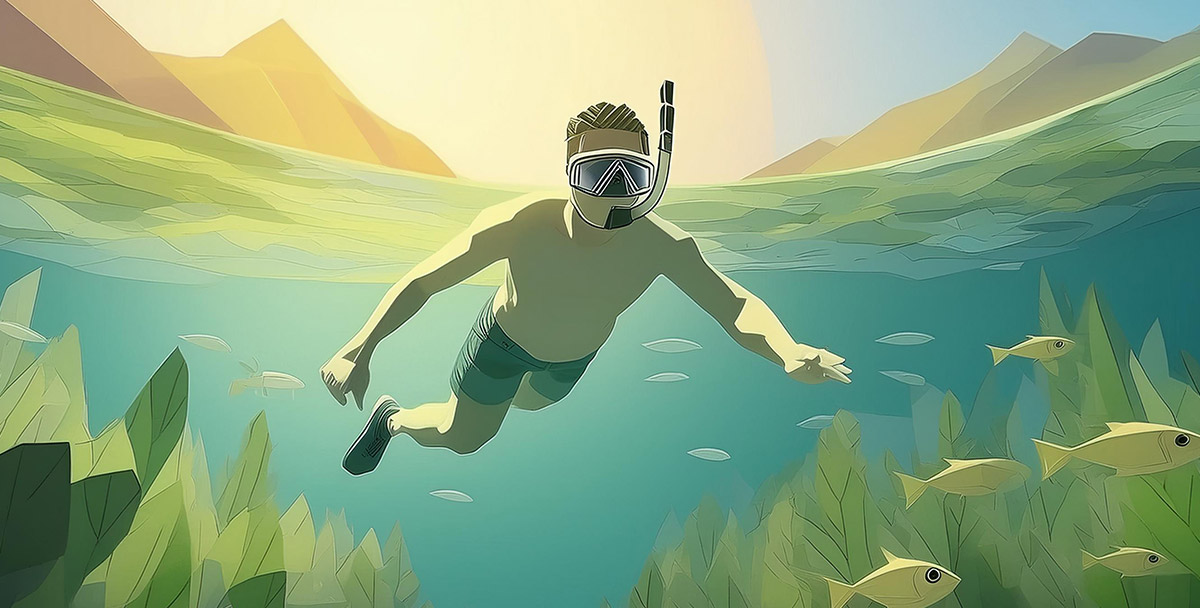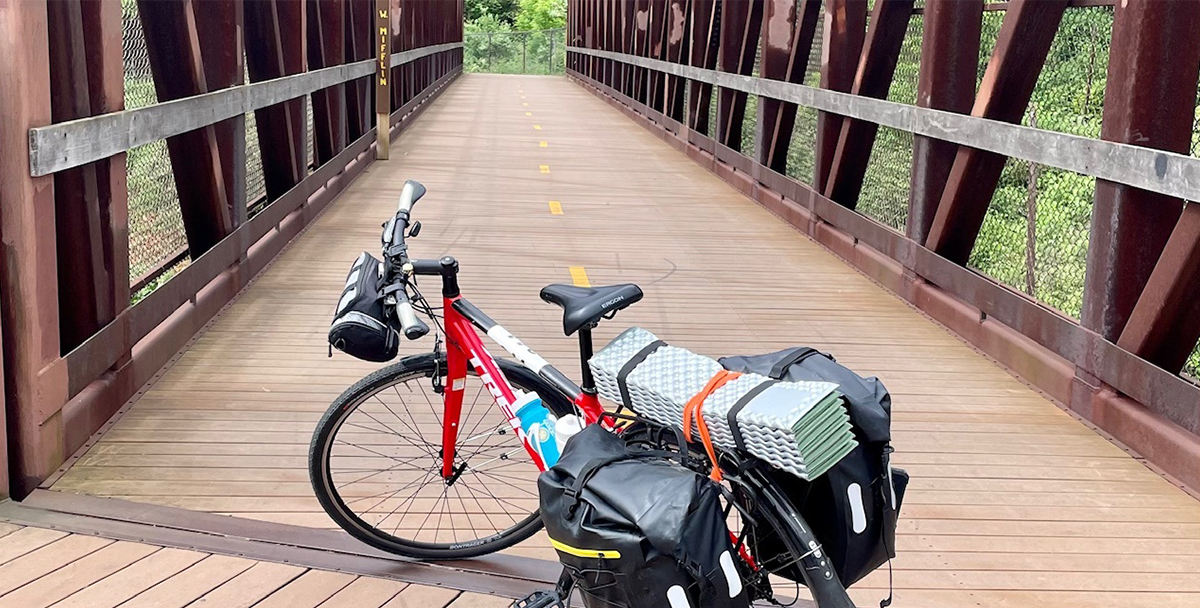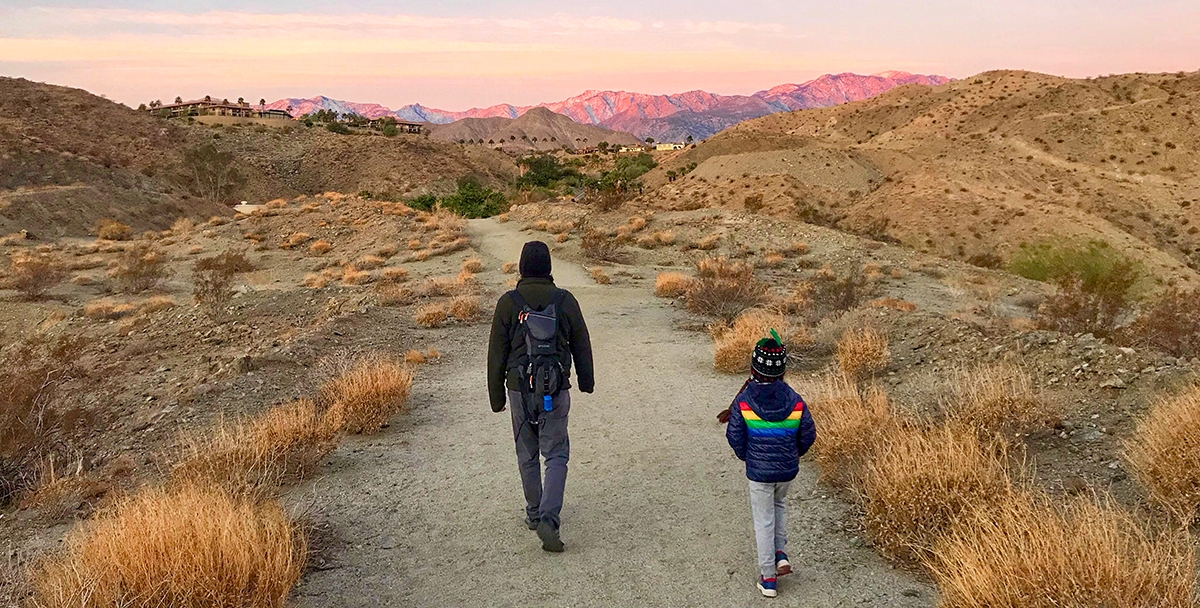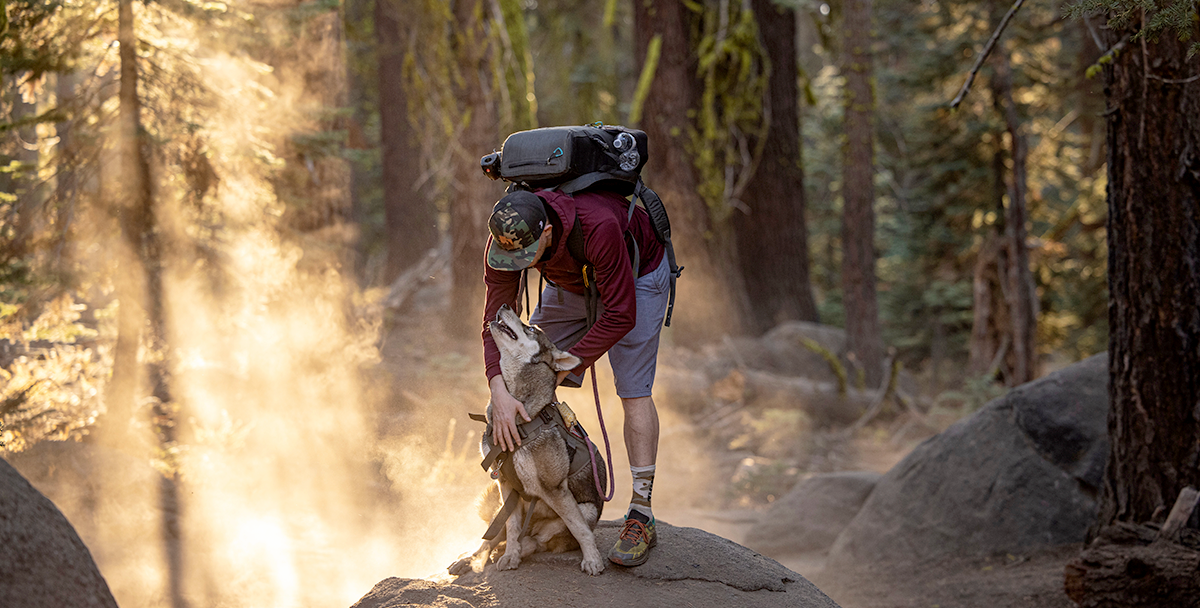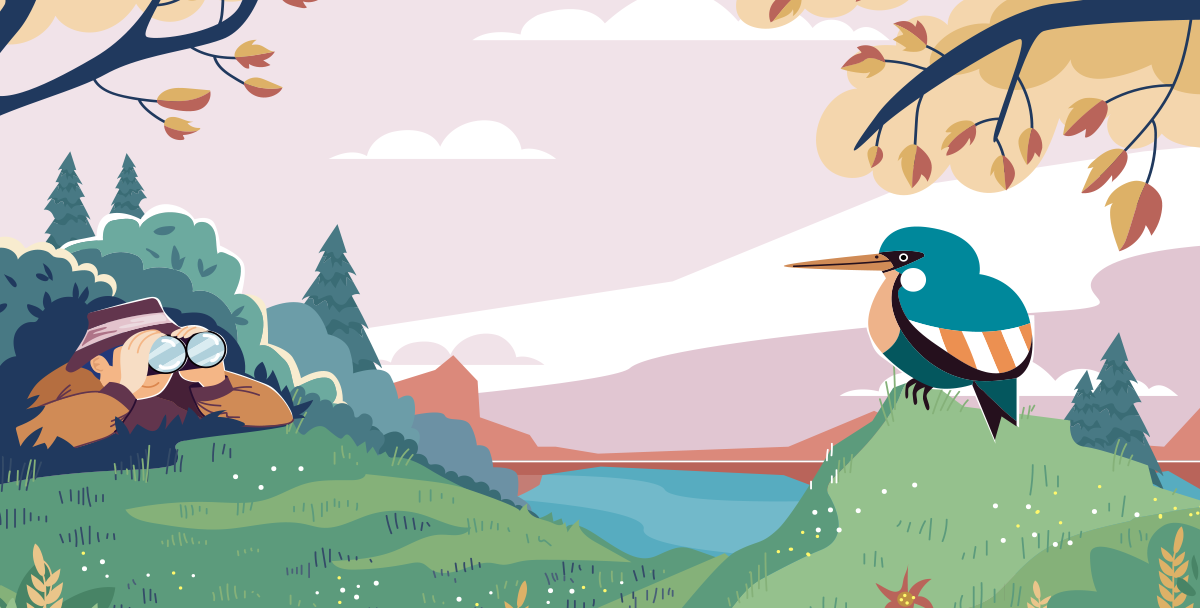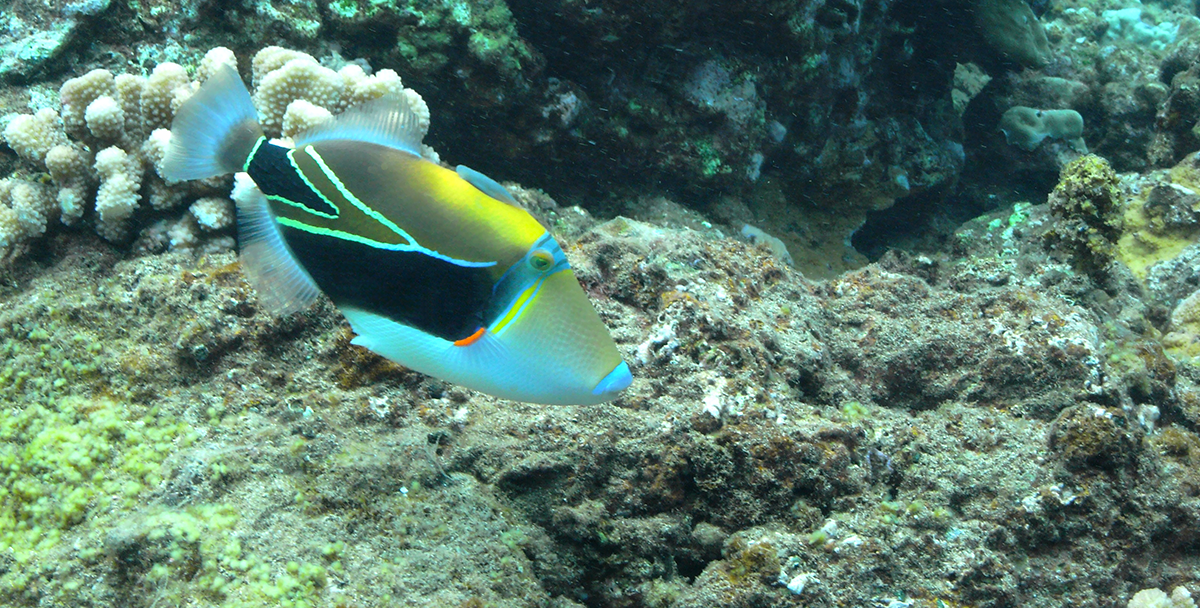Late in the summer of 2020, outdoor apparel brand Arc’teryx facilitated a panel discussion among some of the most active voices from the outdoor industry and community. The panel, titled “Being Welcomed Is Not Enough,” was moderated by Shelma Jun, founder and managing director of Flash Foxy, an inclusive climbing organization.
The title stemmed from a quote by wellness influencer Crystal Jones that had circulated on social media: “There’s a huge difference between ‘all are welcome’ and ‘this was created with you in mind.’”
For just over two hours, Jun and her guests discussed what happens when outdoor groups or spaces say everyone is welcome without doing the work to make everyone feel welcome. “The outdoors have never felt good for me ’cause it’s like I have to leave my Blackness out of it to make other people comfortable,” says Grace Anderson, one of the panelists.
Nearly 70% of people who visit national forests, parks and wildlife refuges are white, according to the National Health Foundation. But the panel dialogue that afternoon, and similar conversations since, are part of a movement toward change.
The outdoor industry is in a paradigm shift, away from the one-size-fits-all model toward one that adapts to the needs of different community members.
Creating change starts with listening – asking the people who feel excluded what they want and need, then following through on delivering it. Here, we highlight three individuals doing that work. These outdoor enthusiasts are working hard to build equity at the grassroots level. Their hope: that everyone will one day feel at home on the cliffs, trails and waves.
Judith Kasiama – Founder of Colour the Trails
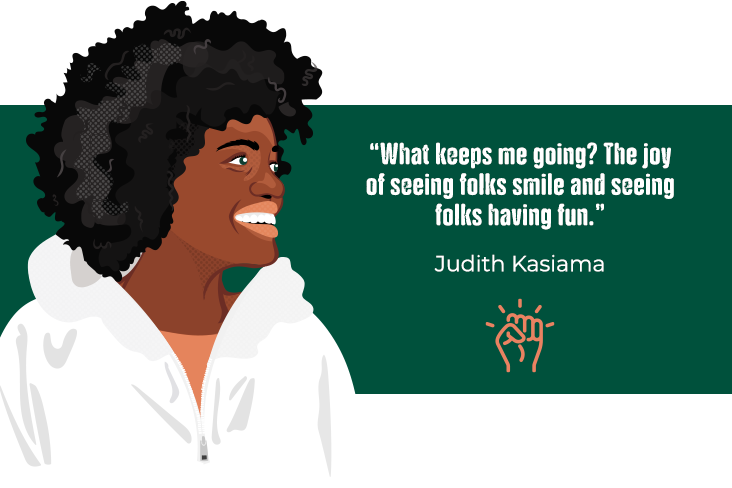
@colourthetrails
As a child growing up in the Democratic Republic of Congo in the 1980s, Judith Kasiama was always outdoorsy. She loved to explore the lush jungle surrounding her hometown of Kikwit, the only rule being that she needed to return home before dark.
But when Kasiama was 7, she and her family were forced to flee their home. She lived in several different cities until arriving in Canada as a refugee in 2010. Today, in her new hometown of Vancouver, British Columbia, she makes it her mission to create spaces that welcome queer and BIPOC folks to connect with nature.
As the founder of Colour the Trails (CTT), a media and events company that advocates for a more inclusive outdoor culture, Kasiama hosts workshops and classes on topics ranging from bike maintenance to skateboarding. She also plans trips, such as a recent three-day adventure to a mountain resort to bike the trails.
“Colour the Trails is showing folks that accessibility is possible,” Kasiama says. Typically, fees for mountain bike rental and access to riding cost hundreds, if not thousands, of dollars per person. CTT negotiates pricing and pools resources to significantly lower costs, leaving participants to pay just a fraction of the regular price.
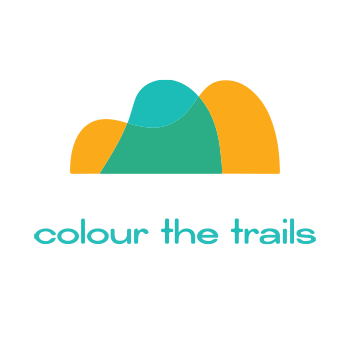
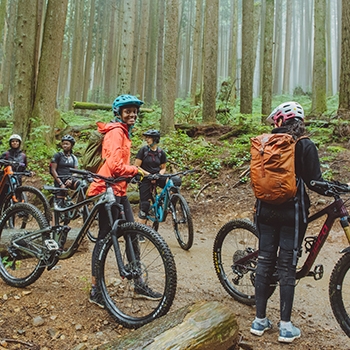
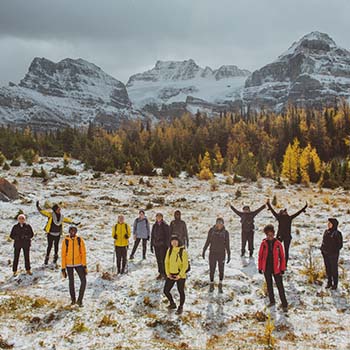
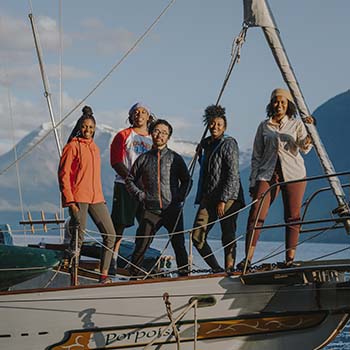
At the Intro to Mountain Biking workshop that CTT hosted in the summer of 2021, past mentees taught newcomers how to maneuver mountain terrain. In a park at the foot of Mount Fromme, a mountain biking destination in British Columbia, the newbies practiced braking, rolling down a grassy hill and standing up on their bikes while keeping the pedals level to the ground.
Kasiama partnered with a local shop, Essential Cycles, to supply nearly 20 bikes as well as helmets and padding. She helped coordinate transportation up to the trailhead and even supplied the pizza at the end of the day when a group of elated, newly minted mountain bikers rode all the way back down into the park.
Covered in mud, they reflected on the day they’d had learning something they may never have believed they could do because the culture did not reflect them.
Colour the Trails is growing – the organization recently opened a chapter in Alberta. What keeps Kasiama motivated to keep doing the work? “The joy of community,” she says. “The joy of seeing folks smile and seeing folks having fun.”
Jenny Bruso – Founder of Unlikely Hikers
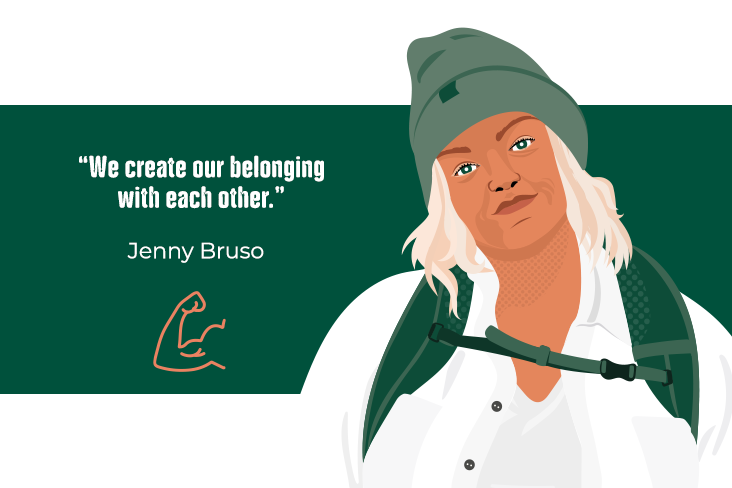
@unlikelyhikers
It wasn’t until she moved to Portland, Oregon, in 2011 that Jenny Bruso took up hiking as a pastime. Being outdoorsy wasn’t something Bruso had grown up with, and hiking quickly took her out of her comfort zone in healthy and exciting ways. It also became an opportunity for travel and, soon enough, a way of building community.
Out on the trails, Bruso, who self-identifies as “a white, fat, queer, femme writer [and] hiker,” noticed the lack of diversity in both body type and ethnicity. In 2016, she started an Instagram account under the handle Unlikely Hikers™, where she posts photos of herself and other hikers who don’t look like what you would see in the typical magazine ad for outdoor gear, with hashtags such as #fatandoutdoorsy and #mybodytookmehere.
In six years, she has built a dedicated following of more than 141,000 hikers and adventurers and has encouraged countless people to embrace hiking as an activity that can be for all kinds of bodies.
Since starting Unlikely Hikers, Bruso has worked with local leaders to host hikes all over the United States. That programming came to a halt during the pandemic but is looking to begin again this year.
Bruso also uses her Instagram platform to post clothing and packs that fit a range of sizes. In partnership with Gregory Mountain Products, she recently collaborated on the first plus-size backpacks, from size 2X to 6X.
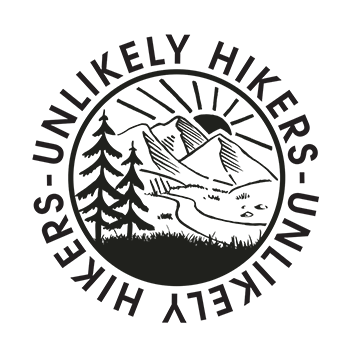
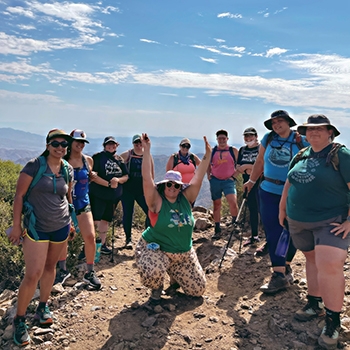
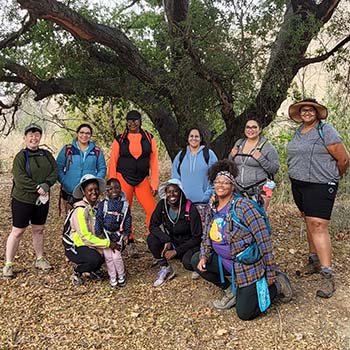
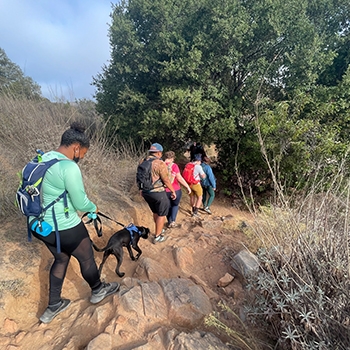
The culture of Unlikely Hikers is also one that takes into account the lands they access. Bruso supports Indigenous communities by accepting participants’ donations at events, matching up to 20% and giving that money to the nations whose lands they are hiking on. Attendees are encouraged to develop their own ongoing practice of reciprocity, starting by acknowledging whose lands they’re on.
Right now, Bruso is excited to plan events after such a long, hard break. “When I can join people experiencing the same or similar social harms and find joy, community and respite, especially in nature, despite all of the injustice and trauma, I feel kind of OK,” she says. “Happy sometimes. Hopeful too. We create our belonging with each other.”
Terumi Murao – Instructor for Laru Beya Collective
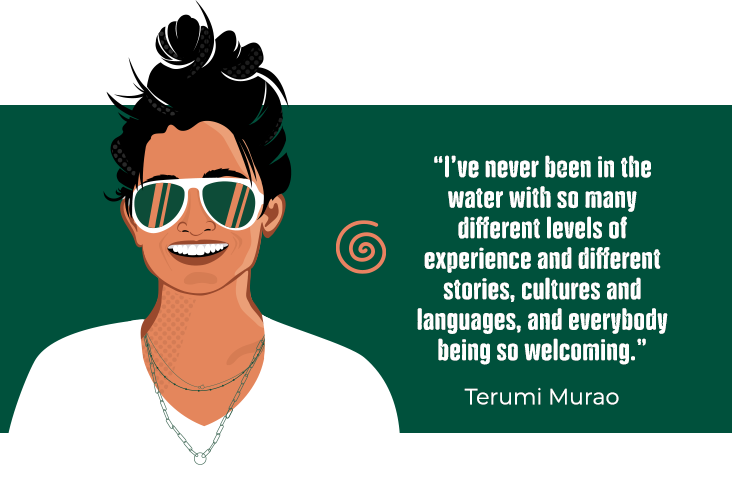
@larubeyasurfing
Surf culture may not be top of mind when thinking of New York City, but a community in the Rockaways, a peninsula in Queens that runs along the Atlantic Ocean, is using its proximity to the beach as a vehicle for social change.
The members of Laru Beya Collective empower historically excluded groups, especially the youth of the Rockaways community, by teaching them to surf and navigate water safety.
Terumi Murao is a stylist, model, surfer and outdoor activist who has worked with Laru Beya almost since its beginning. She discovered the collective in 2018, the same year that Rockaways locals Aydon Gabourel and Warren Sampson co-founded it.
Originally from California, Murao didn’t see herself reflected in the surf community on the West Coast where “surfing itself is not a very inclusive culture.” But after she moved to Brooklyn, a friend introduced her to Laru Beya and she fell in love.
“I’ve never been in the water with so many different levels of experience and different stories, cultures and languages, and everybody being so welcoming,” she says.
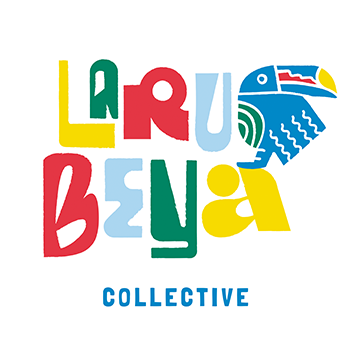
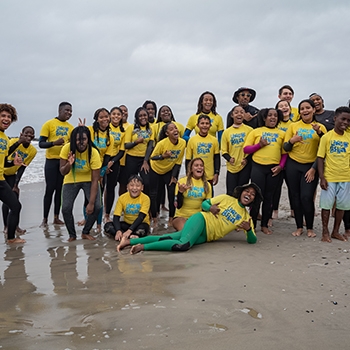
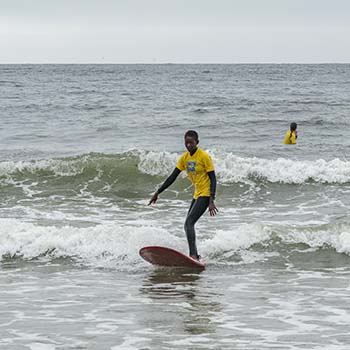
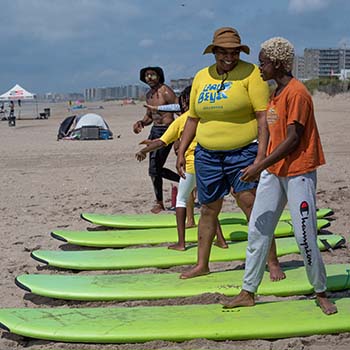
Her role, like everyone’s within the organization, is multifaceted. Throughout the summer, she helps with Sunday water safety and surfing lessons for ages 8 to 18. Beyond the instruction itself, this means early mornings monitoring weather reports, shuttling folks to the beach, and gathering boards, wetsuits and other equipment as needed.
Murao describes the satisfaction of being “right here in our community on the beach, 67th Street in the Rockaways. And then, after two to three hours of instruction, we’ll do a beach cleanup.”
Laru Beya means “on the beach” in the language of the Garifuna, an Afro-Caribbean people, but not every activity keeps members close to the Rockaways. Murao has taken kids to Central Park to teach them rock climbing.
In September 2021, 14 members of Laru Beya, a mix of mentors and mentees, took a trip to Jacksonville, Florida, for a surf competition. The collective covered the kids’ flights and meals while introducing them to the world of competitive surfing.
The work she does with Laru Beya’s “small but mighty” team is relevant beyond any singular activity, Murao says. The proof is written across all of the smiling, sunscreen-tinted faces at a Sunday learners event, where novice surfers of all different body types and abilities gather. The more a person practices riding the waves, the more confidence they gain not only in the water but also outside of it. However these kids may define success, Laru Beya is helping them achieve it.
